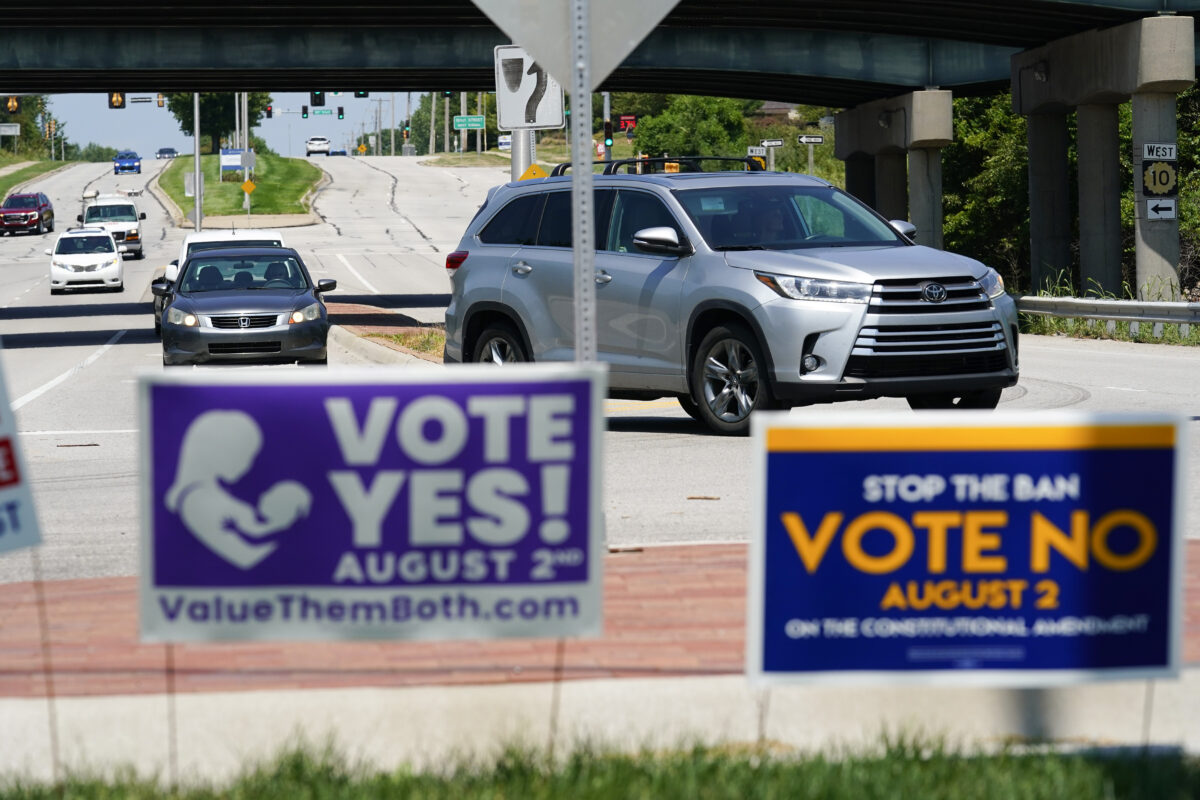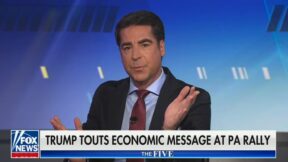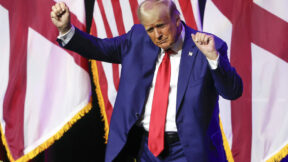The Most Consequential Vote in Recent American History is Happening Today and the News Media Is Ignoring It

Kyle Rivas/Getty Images
To torture a phrase from Thomas Frank’s seminal political analysis, what’s the matter with national news coverage of Tuesday’s referendum in Kansas over abortion rights?
On Monday night, Democratic political analyst James Carville told me he believed the August 2 vote on reproductive rights is the most consequential vote in the past thirty years, and it doesn’t take a political genius to figure out why. The outcome of the vote doesn’t just determine the rights of Kansas women to abortion, but it’s the mother of all political bellwethers following the Supreme Court’s decision to overturn Roe v. Wade.
And yet? Besides a short mention in the 9 AM hour of Morning Joe, morning shows on the three major cable news networks ignored Tuesday’s vote — a vote that will set the course for states on health care, choice, and the rights of fetuses and embryos versus those of full-grown humans for the foreseeable future of the United States. WTF people?
Given the breathless coverage of the leaked draft of the Dobbs decision, the subsequent actual decision overturning Roe, and the vast amount of protest coverage that followed, a reasonable person might think that this vote would merit far more coverage.
To be fair, over the past three weeks, mentions of “Kansas” and “abortion” on MSNBC were over 200. On CNN, those words in the exact phrase were mentioned 67 times, and on Fox News, it was only mentioned twice. But before you think that’s enough coverage, that’s over 500 hours of cable news programming. Not good, Bob.
So why is this vote so consequential? Simply put, the vote will decide whether to end the state’s constitutional right to an abortion. It comes in the form of a ballot measure that, if passed, will allow the Republican-held legislature in Kansas to enact a near-total ban on abortion. This is similar to what several neighboring states have done, which means that the Sunflower State will no longer be a safe haven for women seeking an abortion in the region.
A “yes” vote will allow for a constitutional amendment banning abortion, while a “no” vote will keep abortion legal in the state — a state that, in a grim twist of irony, was founded on freedom during the abolition movement, which is why it is known in many circles as “The Free State.”
Carville has spent a fair amount of time in the state of Kansas in the past week because he recognizes the vast implications of this vote. If Kansas votes to allow conservative state legislators to institute a state-wide ban on abortion, it would signal how many other red states will proceed. It would also harden the pro-life platform within the Republican Party. Of course, if the vote keeps abortion legal in the traditionally red state, that would send a massive message in the opposite direction.
I grew up in Kansas — first in Hutchinson, a small city outside of Wichita — and then later in the Kansas City suburb of Overland Park, the seat of Johnson County. The state’s politics are just as bifurcated as America is today: one can still see a plethora of Trump flags flying around Hutchinson, while “vote no” yard signs in Johnson County vastly outpace the anti-abortion “vote yes” ones.
Carville is a vocal proponent of the Democratic agenda, and his recent time spent in Kansas was entirely focused on the outcome of this vote. He was unable to call his shot but believes it will be close. He did add that a large turnout of Johnson County that had 65% voters for “NO” would go a very long way in helping to keep abortions legal in the state.
Carville did note one benefit to the low national profile of this vote, however: it has kept the “East Coast elitist weirdos” from entering into the discussion, suggesting that the professional political class that flies in from the coasts to work on local referendums like this one end up doing more harm than good.
And speaking of “East Coast elitist weirdos” and their outsized footprint in the political media ecosphere…the most obvious reason why the media has overlooked this story? The very same political provincialism that makes coastal elites such a perfect — and often deserved — punchline for so many middle Americans.
This is an opinion piece. The views expressed in this article are those of just the author.




